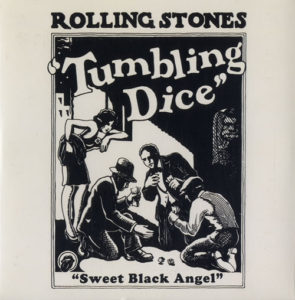
I’m not above patting myself on the back, and today Judge Sam Lindsay granted a Motion to Dismiss I filed for the defendant in Segovia v. Admiral Realty, Inc., Case No. 3:21-cv-2478 (N.D. Texas August 4, 2022). Judge Lindsay found, correctly, that Segovia had failed to plead the concrete and particularized injury and imminent threat of future harm required to maintain an action under Title III of the Americans with Disabilities Act. Segovia and his lawyers¹ have filed the same form complaint in at least 31 lawsuits in the Northern District of Texas, and every single one of those cases that is still open should be subject to dismissal based on the same reasoning used by Judge Lindsay.² This isn’t, by the way, Segovia’s first setback. In June he voluntarily dismissed a lawsuit against another of my clients because he had made a fatal error when amending his complaint to avoid my original motion to dismiss. In July his attorneys voluntarily dismissed an almost identical complaint against one of my clients (though filed by a different serial ADA filer) rather than face the possibility of losing on summary judgment.
The conventional wisdom in the kind of serial ADA case filed by Segovia is that a quick settlement is the cheapest way out, but with Judge Lindsay’s opinion clients willing to take some risk could well decide they are not interested in paying off plaintiffs like Segovia whose industrial approach to litigation seems to be more about making money than helping those with disabilities.
+++++++++++++++++++++++++++++++
¹ He was represented in this case by William Strickland. He is represented in others by Matthew Sapp and Michael Sturgill of the Sapp Sturgill firm.
² Other District Judges are not obligated to agree with their colleagues, so other judges in the Northern District might reach a different result, but it is reasonable to hope other judges will appreciate the value of consistency among different courts when confronted with identical claims.




 “Short sharp shock” is too good a phrase not to re-use, as proved by the fact that after its first use by Mary I of England to describe her hope that burning a few protestants would bring others back into the fold and its popularization by Gilbert and Sullivan it turned up in a song by Pink Floyd and as the title of Michelle Shocked’s first album. My use probably won’t get added to the Wikipedia page on the phrase (7) but it suits a discussion of braille gift card litigation and the effect of TransUnion v. Ramirez in ADA litigation.
“Short sharp shock” is too good a phrase not to re-use, as proved by the fact that after its first use by Mary I of England to describe her hope that burning a few protestants would bring others back into the fold and its popularization by Gilbert and Sullivan it turned up in a song by Pink Floyd and as the title of Michelle Shocked’s first album. My use probably won’t get added to the Wikipedia page on the phrase (7) but it suits a discussion of braille gift card litigation and the effect of TransUnion v. Ramirez in ADA litigation. The Rolling Stones famously asked that they be rolled like a pair of tumbling dice, and looking at recent Title III ADA headlines reminded me of just what a crapshoot ADA litigation can be. The good news for businesses is that the district attorneys of San Francisco and Los Angeles have filed suit against the Potter Handy firm and its partners alleging that the firm filed false lawsuits under the ADA.¹ Hard on the heels of the action by the local authorities a federal judge in San Francisco, Vince Chhabria, entered a series of show cause orders requiring the Potter Handy firm and its clients to file sworn declarations providing factual support for their allegations concerning having visited and intending to visit ADA defendants in the future.² I don’t know how Potter Handy and its clients will respond to these orders, or what Judge Chhabria will do with those responses, but within days of these actions a federal judge in San Jose entered an all too typical order allowing a case to proceed despite being more or less identical to those being handled by Judge Chhabria. Sevens or snake eyes, in ADA Title III matters defendants and plaintiffs are at the mercy of the random assignment of judges done with each federal lawsuit filed.
The Rolling Stones famously asked that they be rolled like a pair of tumbling dice, and looking at recent Title III ADA headlines reminded me of just what a crapshoot ADA litigation can be. The good news for businesses is that the district attorneys of San Francisco and Los Angeles have filed suit against the Potter Handy firm and its partners alleging that the firm filed false lawsuits under the ADA.¹ Hard on the heels of the action by the local authorities a federal judge in San Francisco, Vince Chhabria, entered a series of show cause orders requiring the Potter Handy firm and its clients to file sworn declarations providing factual support for their allegations concerning having visited and intending to visit ADA defendants in the future.² I don’t know how Potter Handy and its clients will respond to these orders, or what Judge Chhabria will do with those responses, but within days of these actions a federal judge in San Jose entered an all too typical order allowing a case to proceed despite being more or less identical to those being handled by Judge Chhabria. Sevens or snake eyes, in ADA Title III matters defendants and plaintiffs are at the mercy of the random assignment of judges done with each federal lawsuit filed.